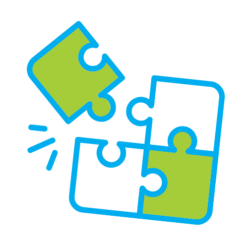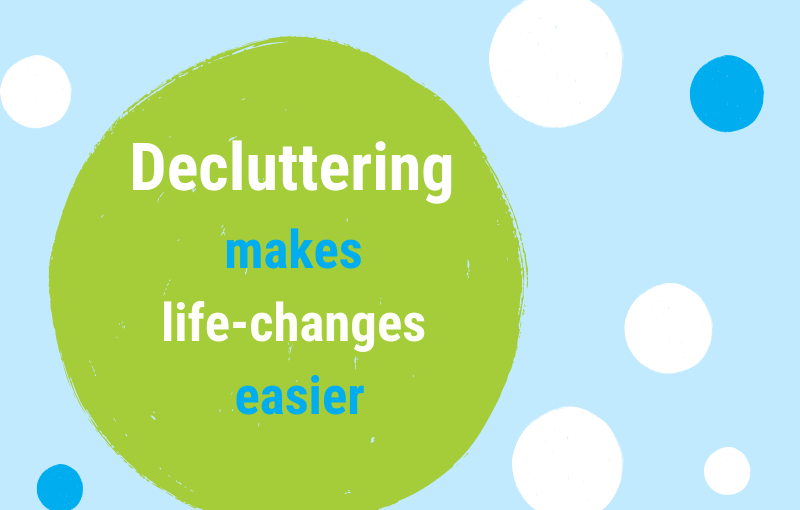In life-change situations, the creation of a clutter-free home – the active process of sorting through all our belongings and intentionally deciding what we want to keep – can make the transition easier.
What is clutter?
My favourite definition of clutter is very simple:
‘Clutter is anything that doesn’t serve us (any longer). We don’t need it, we don’t use it, we don’t love it.’
This short definition is easy to remember and it’s very helpful while we are sorting through our stuff – whenever we need to make a decision, we can just ask, ‘does this serve me?’
Julie Morgenstern’s definition of clutter helps us see why intentional decluttering projects can make life changes easier:
‘Clutter’ can be defined as any obsolete object “that weighs you down, distracts you, or depletes your energy”.
It “is symbolic of your attachment to something from the past that must be released in order to make room for change”. (Julie Morgenstern)
Clutter is nothing we should feel ashamed of or guilty about.
Instead of judging ourselves and hating the ‘obsolete objects’ in our home, we can decide to accept the clutter as what it actually is:
A collection of belongings that no longer serves our needs but that was useful to us at some point in time.
Positive effects of the decluttering process
If we consider clutter as being ‘anything that no longer serves’ us, the process of ‘decluttering’ loses its negative image.
Instead of being the unpleasant activity of just throwing things away, it evolves as a powerful ‘change assistant’.
In fact, decluttering can be a positive and productive experience, an opportunity to learn about ourselves and our values.
The starting point of the decluttering/change process: Awareness
Before we declutter anything, we take the time to thoroughly evaluate and ‘understand’ our belongings.
We ‘study’ everything we own, but especially the clutter, and explore its former meaning and value.
Then we consider and decide what’s of current and future value to us. These are the things we want to keep.
Finally, we are able to intentionally and decisively loosen our attachment to those objects and issues of our past that no longer serve us, and sort them out.
Why the decluttering process is especially helpful during life transitions
We are all human beings and we all have a human brain. 🙂
That’s good, most of the time. But not so much during life-transitions.
Our human brain doesn’t like change. It wants us to be safe and to stay where we are, and it wants the things in our life to remain exactly as they are now.
That’s why life-changes – moving from what currently is and what we know well to something new and unknown – often create uncomfortable feelings, like anxiety, sadness, and resistance.
Intentionally decluttering our physical belongings can make change less frightening.
While we are taking everything out and evaluating what we currently have in our life, we become more aware of what we value, what’s really important to us, and what we want to take along into the next phase of our life.
The increased awareness makes it easier for us to decide with confidence about what we want to leave behind because it no longer serves us.
We intentionally let go of the things that belong to the past – which frees us up to move on into the future – with more clarity and lightness.

